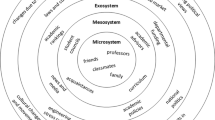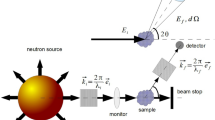Abstract
Advances in science and technology are now at the heart of the global economy, but the number of students earning degrees in the sciences, technology, engineering, and math (STEM) fields has stalled. According to the National Association for Colleges and Employers (NACE), programs have been initiated nationwide to nurture interest in the sciences, including research competitions, co-ops and internships, and K-12 STEM education. Senior thermal analysis scientists are not only researchers, they are role models, mentors and teachers intimately involved in the recruitment and training of young scientists. The authors present guidelines for thermal analysis research project planning for high school students, undergraduate students and master’s and doctoral candidates. Project planning includes developmentally appropriate techniques, methods, instruments, scope and significance. Case studies illustrate examples of short-term, concrete materials analysis projects tailored to younger student researchers, as well as master’s level projects making significant contributions to the state of the science and innovative doctoral research. In addition to designing projects for students at all levels, senior thermal analysis scientists can use specific teaching and training techniques to help young scientists develop their abilities in the lab and at the podium.


Similar content being viewed by others
References
Terrell N. Science technology engineering mathematics occupations. Occup Outlook Q. 2007;51(1):26–33.
Tanaka H, Koga N. Thermal analysis and kinetics of solid-state reactions: its application to education in chemistry. J Therm Anal Calorim. 1999;56:855–61.
Hakvoort G, Hakvoort TE. A practical thermal analysis course. J Therm Anal Calorim. 1997;49:1715–23.
Riga A, Bracone N, O’Connor A, Somrack A, Oberoi L, Alexander K. Thermal analysis in university research and undergraduate teaching labs. In: Proceedings of 32nd NATAS conference; 2004. p. 104.
Wunderlich B. Teaching thermal analysis of polymeric materials. J Therm Anal Calorim. 2000;59:7–19.
Sørensen OT. A new dimension in thermal analysis: virtual class-room teaching over the Internet. J Therm Anal Calorim. 2005;80:793–4.
Boyer Commission on Educating Undergraduates in the Research University. Reinventing undergraduate education: a blueprint for America’s research universities. Stony Brook: State University of New York at Stony Brook for the Carnegie Foundation for the Advancement of Teaching; 1998.
Suga H. Prospects of materials science: from crystalline to amorphous solids. J Therm Anal Calorim. 2000;60:957–74.
Short N, Riga AT, Dutra de Souza KC, Alexander KS. Thermal and analytical characterization of a polymorphic drug: nifedipine. In: Proceedings of 33rd NATAS conference; 2005. disk paper.
Zaboura D, Riga AT, Short N, Dutra de Souza KC, Alexander KS. Thermal and analytical characterization of a polymorphic drug: tolbutamide. In: Proceedings of 33rd NATAS conference; 2005. disk paper.
Najjar O, Matthews ME, Presswala L, Atkinson I, Gerhardstein N, Moran J, Wei R, Riga AT. Essential physical-chemical properties of d and l amino acids by thermal and analytical methods. Podium Presentation, American Chemical Society Meeting-in-Miniature, Notre Dame College, South Euclid, Ohio; 2007.
Maheswaram MPK, Riga A, Alexander K. (2009). An innovative dielectric method determined the crystalline and amorphous content in pharmaceuticals. Poster, College of Science Research Day 2009, Cleveland State University, Cleveland, Ohio. http://www.csuohio.edu/sciences/researchday/2009/abstracts09.pdf.
Seymour E, Hunter A-B, Laursen SL, DeAntoni T. Establishing the benefits of research experiences for undergraduates in the sciences: first findings from a three-year study. Sci Educ. 2004;88(4):493–534.
Adhikari N, Nolan D. “But what good came of it at last?”: how to assess the value of undergraduate research. Not AMS. 2002;49(10):1252–7.
Barlow A, Villarejo M. Making a difference for minorities: evaluation of an education enrichment program. J Res Sci Teach. 2004;41(9):861–81.
Gordon EW, Bridglall BL. Creating excellence and increasing ethnic minority leadership in science, engineering, mathematics and technology: a study of the Meyerhoff Scholars Program at the University of Maryland-Baltimore County; 2004. Retrieved April 15, 2010 from http://www.ncrel.org/gap/studies/meyerhoff.pdf.
Hathaway R, Nagda B, Gregerman S. The relationship of undergraduate research participation to graduate and professional educational pursuit: an empirical study. J Coll Stud Dev. 2002;43(5):614–31.
Hunter AB, Laursen SA, Seymour E. Becoming a scientist: the role of undergraduate research in students’ cognitive, personal and professional development. Sci Educ. 2006;91:36–74.
Kremer JF, Bringle RG. The effects of intensive research experience on the careers of talented undergraduates. J Res Dev Educ. 1990;24(1):1–5.
Lopatto D. Undergraduate research experiences support science career decisions and active learning. CBE Life Sci Educ. 2007;6(4):297–305.
Russell SH, Hancock MP, McCullogh J. The pipeline: benefits of undergraduate research experiences. Science. 2007;316:548–9.
Wenderholm E. Challenges and the elements of success in undergraduate research. SIGSCE Bull. 2004;36(4):73–5.
Bauer KW, Bennett JS. Alumni perceptions used to assess undergraduate research experience. J Higher Educ. 2003;74(2):210–30.
Lopatto D. The essential features of undergraduate research. CUR Q. 2003;23:139–42.
Lopatto D. Survey of Undergraduate Research Experiences (SURE): first findings. Cell Biol Educ. 2004;3:270–7.
Mabrouk P, Peters K. Student perspectives on undergraduate research experiences in chemistry and biology. CUR Q. 2000;21:25–33.
Mervis J. Student research: what is it good for? Science. 2001;293:1614–5.
Nagda BA, Gregerman SR, Jonides J, von Hippel W, Lerner JS. Undergraduate student-faculty research partnerships affect student retention. Rev High Educ. 1998;22(1):55–72.
Pearson M, Brew A. Research training and supervision development. Stud High Educ. 2002;27:135–50.
Russell SH. Evaluation of NSF support for undergraduate research opportunities: 2003 NSF program participant survey (Draft Final Report to the NSF). Menlo Park, CA: SRI International. 2005. Retrieved April 15, 2010 from http://www.sri/com/policy/csted/reports/.
Summers MF, Hrabowski FA. Preparing minority scientists and engineers. Science. 2006;311:1870–1.
Tang BL, Gan YH. Preparing the senior or graduating student for graduate research. Biochem Mol Biol Educ. 2005;33:277–80.
Tomovic MM. Undergraduate research—prerequisite for successful lifelong learning. ASEE Conf Proc. 1994;1:1469–70.
Ward C, Bennett J, Bauer K. Content analysis of undergraduate research student evaluations. 2002. Retrieved April 15, 2010 from http://www.udel.edu/RARE.
Zydney A, Bennett JS, Shahid A, Bauer K. Impact of undergraduate research experience in engineering. J Eng Educ. 2002;19(2):151–7.
Zydney A, Bennett JS, Shahid A, Bauer K. Faculty perspectives regarding the undergraduate research experience in science and engineering. J Eng Educ. 2002;19(3):291–7.
Author information
Authors and Affiliations
Corresponding author
Rights and permissions
About this article
Cite this article
Matthews, M.E., Riga, A.T. Career development and project planning for emerging thermal analysis scientists. J Therm Anal Calorim 106, 33–38 (2011). https://doi.org/10.1007/s10973-010-1235-5
Published:
Issue Date:
DOI: https://doi.org/10.1007/s10973-010-1235-5




